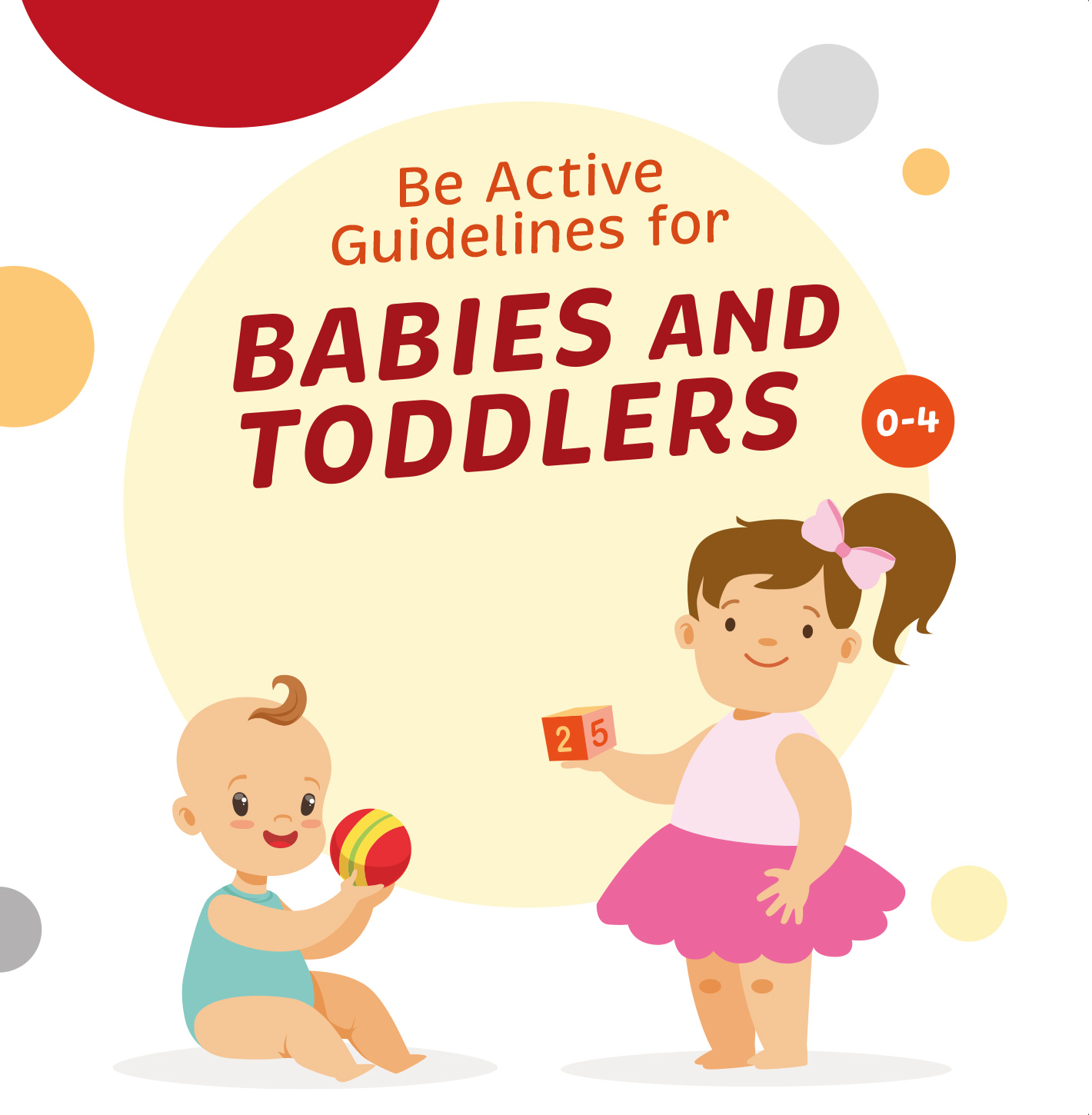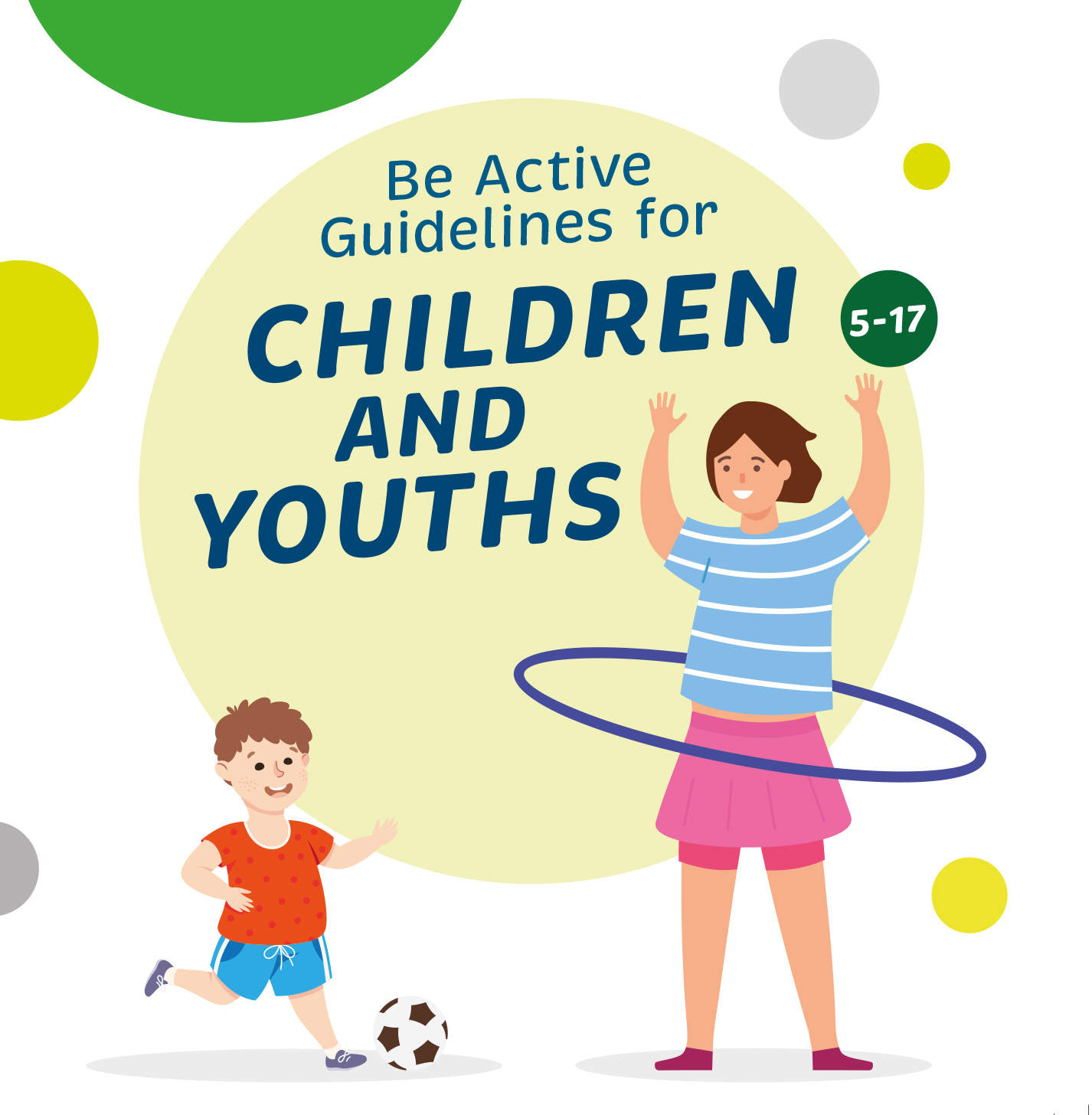Access our easy read versions by clicking your preferred language below!
English / Maltese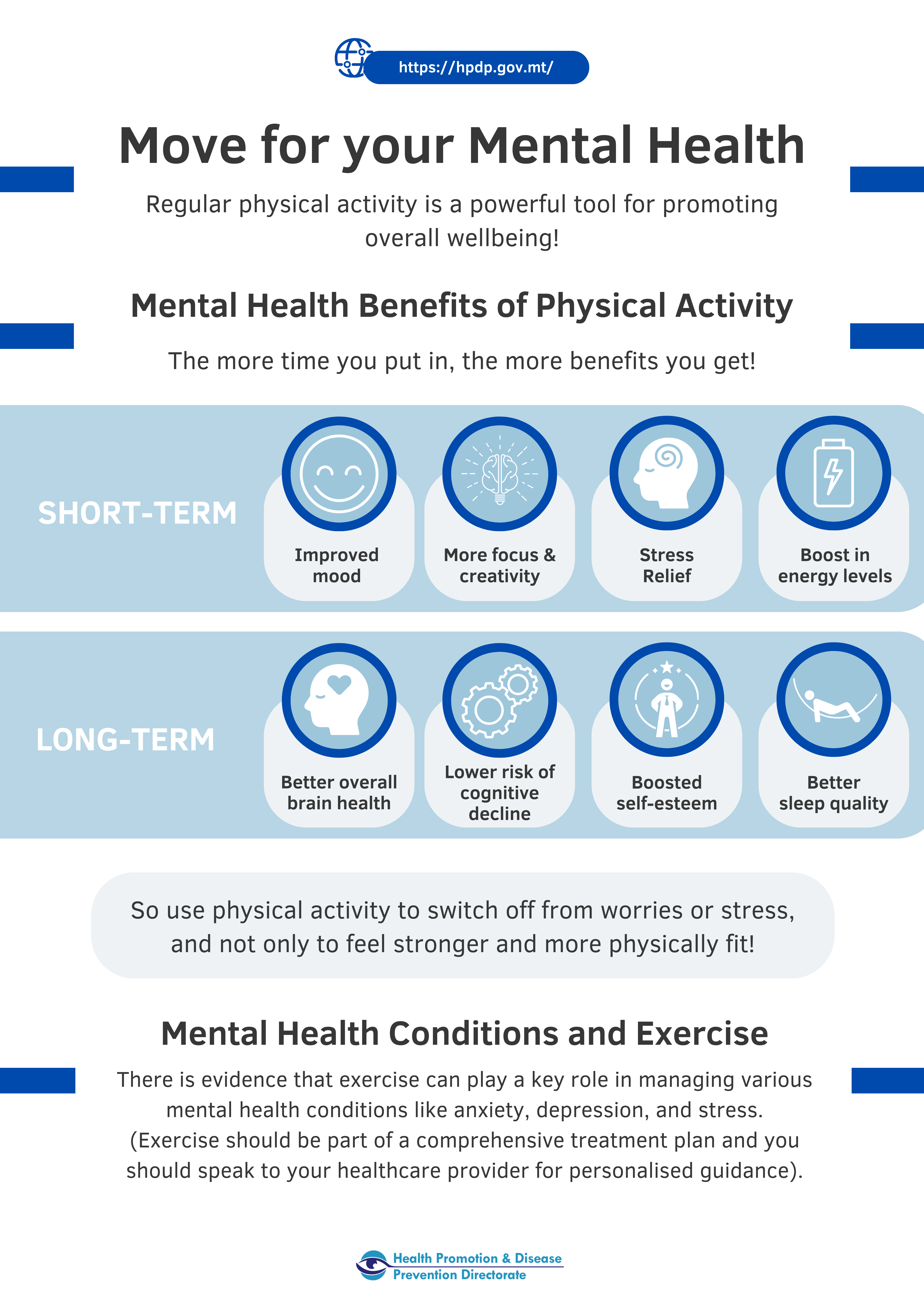
Engaging in regular physical activity is not only beneficial for your physical well-being but also plays a significant role in promoting mental health and overall well-being.
Mental Health Benefits of Physical Activity
Regular physical activity has both short-term and long-term positive impacts on mental health. From improved mood and emotional well-being to enhanced cognitive function, regular physical activity is a powerful tool for promoting mental well-being.
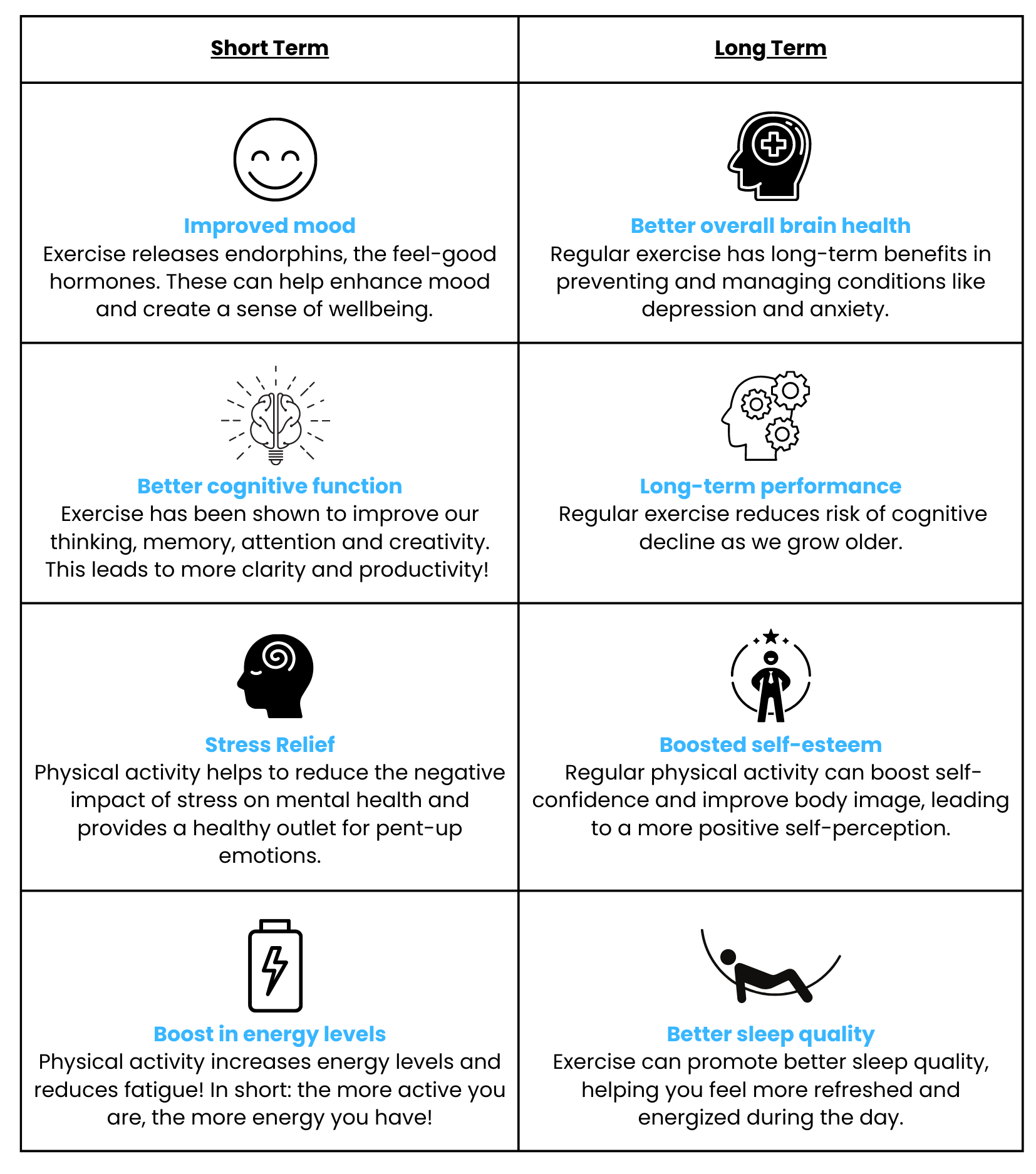
So, use physical activity to switch off from worries or stress, and not only to feel stronger and more physically fit! Sometimes, we store negative emotions in our body, so just shaking, stretching, or moving our bodies can help us let go of this.
Types of Exercise
There are different types of exercise, each contributing to mental health in unique ways:
1. Aerobic exercise: This includes activities like walking, jogging, swimming, or cycling. These activities make your heart beat faster and improve your heart and lung health. When you do aerobic exercises, your body releases chemicals called endorphins that make you feel good. They can boost your mood and reduce feelings of anxiety.
2. Strength training: This involves exercises that help you build strength in your muscles by using weights or your own body weight. Exercises like lifting weights or doing push-ups not only make your muscles stronger but improve the overall shape and composition of your body. When you see improvements in your strength and body, it can boost your self-esteem and confidence.
3. Flexibility exercises: These focus on improving your flexibility and range of motion. Examples include yoga, stretching, and Pilates. These exercises not only make your muscles more flexible but also help you relax and become more aware of your body.
How active do I have to be?
The table below shows the recommended activity for a number of ages. The recommended amounts take up only a small percentage of your time but have the power to transform your overall wellbeing!
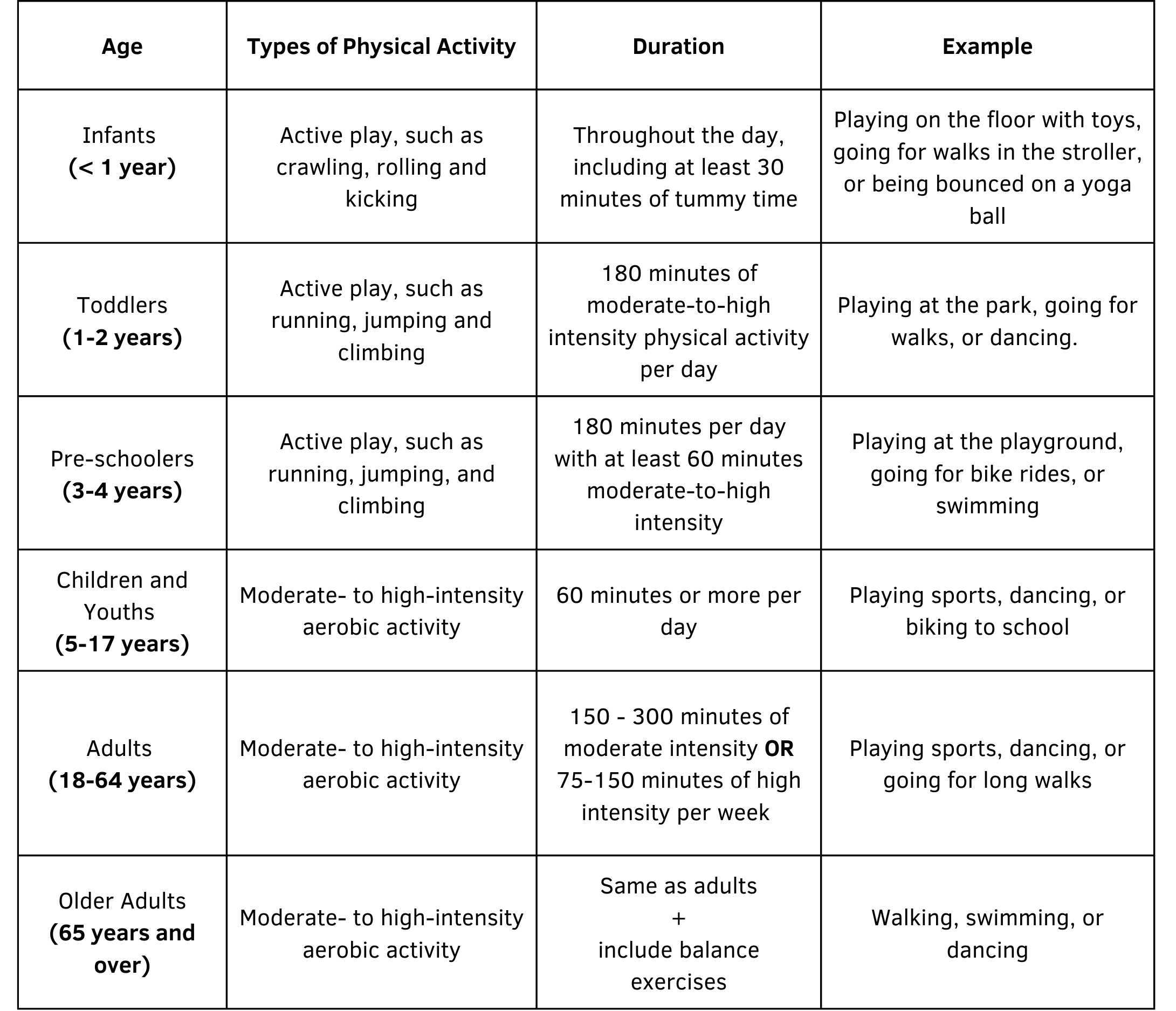
Any amount of physical activity is good for you, so do not worry if you need to start off easy. The most important thing is to do something you enjoy, as you’re more likely to keep doing it. Once you’re regularly active, try thinking about increasing the amount of activity you do: remember that some is good, more is better.
Tips for Incorporating Exercise
Incorporating physical activity into your daily routine can seem daunting, but with these evidence-based tips, you can set and keep a regular exercise routine.
1. Start slow, then grow: Start with simple activities and gradually increase the intensity and duration of your work-outs. If you do not exercise, you might want to consult with your doctor before starting.
2. Find activities you enjoy: Discover physical activities that bring you joy, and you’ll be more likely to stick to them! Whether it’s dancing, hiking, playing a sport, or joining group fitness classes, there will be something for you.
3. Set realistic goals: Setting specific, measurable, attainable, relevant, and time-bound (SMART) goals, tracking them, and celebrating small victories will keep you motivated.
4. Use your daily routine: Get creative and see how you can get more movement into your day. Take the stairs instead of the lift, change up your commute to work, or do small exercises at your work desk to break up long periods of sitting.
5. Make it a social experience: Exercise with friends, join sports clubs or fitness classes. The social aspect makes it fun and increases your motivation, but also increases accountability and a sense of community.
Bonus Tip: What’s on your exercise menu?
We don’t always have the same energy, and that’s alright. Choose a few ‘starter’ exercises that you can perform every day like stretching, yoga, swimming or walking. When you have the energy, engage in your ‘mains’ exercises, which are higher-intensity exercises.
Mental Health Conditions and Exercise
Exercise can play a key role in managing various mental health conditions. Research shows that physical activity can help alleviate symptoms of anxiety, depression, and stress. It is important to note that exercise should be part of a comprehensive treatment plan and individuals should consult with their healthcare provider for personalised guidance.
Discover new spots
Malta is full of places to enjoy some movement! Make the most of our island by having a look at our interactive map!
Have a look at our published guidelines
Evidence-based guidelines are available for you to understand exactly what you need, depending on your age!
CLICK ON THE GUIDELINES YOU WANT TO READ